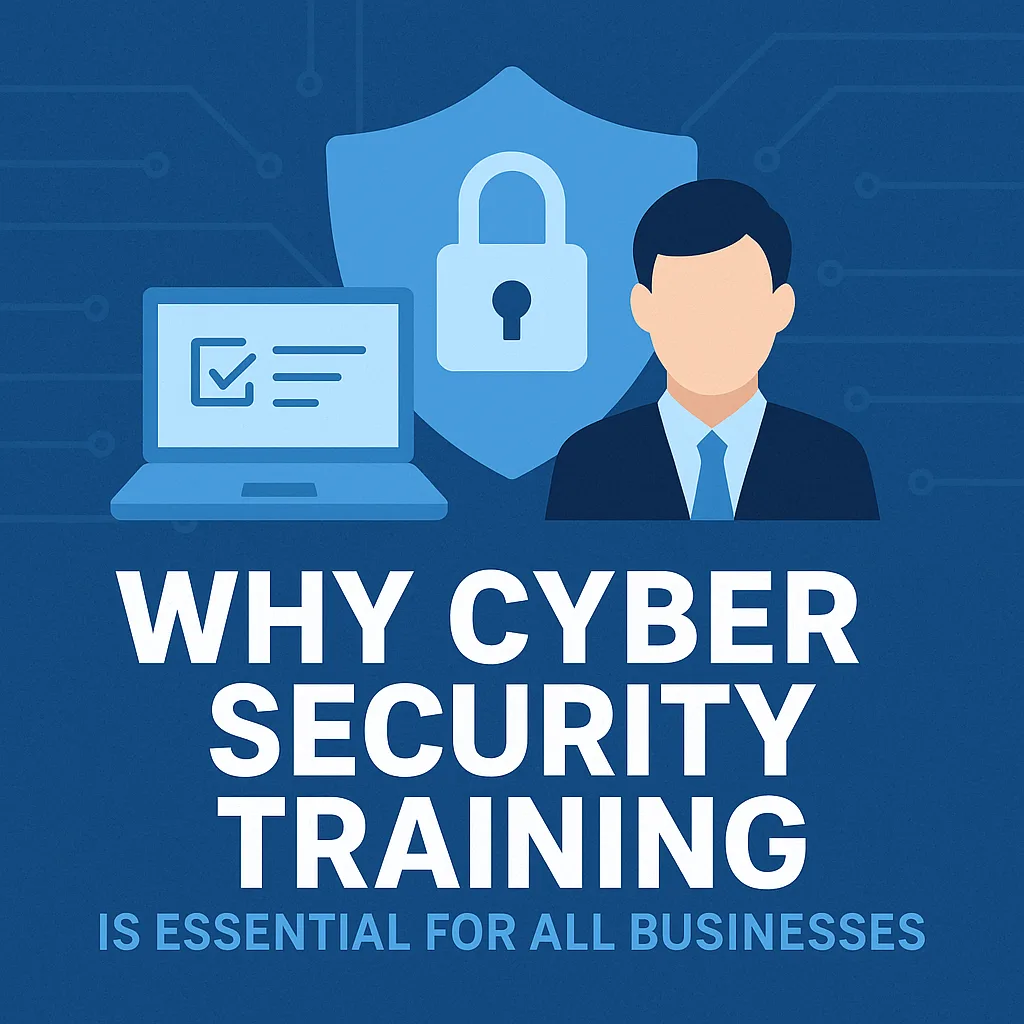In an age where data breaches make headlines and ransomware halts global operations, the phrase “people are your first line of defense” is more than a slogan—it’s a reality. Yet too many businesses still treat cybersecurity training as a checkbox exercise rather than a strategic investment.
This article explores why cybersecurity training is essential for all businesses, not just from a compliance perspective, but as a foundational business practice that empowers people, strengthens systems, and safeguards reputations.
1. Cybersecurity Isn’t Just an IT Problem—It’s a Human Problem
Many cyber incidents begin not with sophisticated code but with a simple click. Phishing, credential theft, and social engineering all exploit human psychology, not firewalls.
Training turns your weakest link into a proactive shield. When employees understand the tactics attackers use, they’re more likely to question suspicious emails, spot anomalies, and report issues early.
✅ Security awareness isn’t about paranoia—it’s about pattern recognition.
2. Every Department Touches Data—So Every Employee Matters
From finance to HR, marketing to operations, every department handles sensitive data—whether it’s payroll details, customer records, or intellectual property.
Cybersecurity training helps employees:
- Recognize data sensitivity
- Understand compliance obligations (e.g., GDPR, HIPAA)
- Apply appropriate safeguards
This decentralizes responsibility, creating a culture of shared security ownership rather than leaving it all to IT.
3. Training Reduces Real-World Risk (and Cost)
Studies show that companies with robust training programs experience fewer security incidents and recover faster when breaches occur. One click on a malicious link can cost millions in downtime, legal fees, and reputational damage.
Cybersecurity training:
- Reduces phishing click rates
- Improves incident reporting time
- Enhances overall cyber hygiene
Think of it as insurance that pays dividends in awareness and resilience.
4. It Builds a Security-First Culture
Culture drives behavior. When employees see that security is taken seriously—and that training is practical and relevant—they’re more likely to engage meaningfully.
What a strong security culture looks like:
- Employees challenge odd requests (e.g., urgent invoice approvals)
- Suspicious behavior is reported without fear
- Updates and policies are followed because they make sense
This culture is a competitive differentiator in a world where trust is currency.
5. Modern Cybersecurity Training is Not Boring
Gone are the days of monotone voiceovers and endless PowerPoint slides. Today’s best training platforms use:
- Interactive scenarios
- Microlearning modules
- Gamification
- Real-world phishing simulations
Training should evolve like threats do—dynamic, relevant, and engaging.
6. Regulations Mandate It—but That Shouldn’t Be the Only Reason
Yes, training is required under frameworks like:
- PCI DSS
- ISO/IEC 27001
- SOC 2
- HIPAA
- GDPR
But compliance alone won’t stop a breach. True security comes when training goes beyond the bare minimum—when it’s tailored, updated regularly, and embedded in your processes.
7. Cybersecurity Training Protects Your Brand
Trust takes years to build and seconds to lose. A preventable breach—caused by a lack of awareness—can erode customer confidence overnight.
Cyber training helps:
- Prevent public-facing mistakes
- Minimize breach impact
- Reassure stakeholders of your commitment to security
Your people are your brand ambassadors—even in security.

Conclusion: Train Like Your Business Depends on It (Because It Does)
Cybersecurity training is no longer optional. It’s not a one-time event. It’s an ongoing, evolving, business-critical function that equips your people to recognize and respond to threats, protect your assets, and uphold your reputation.
Businesses that invest in training don’t just comply—they compete. They gain resilience, trust, and a workforce that stands as the first and strongest line of defense.


